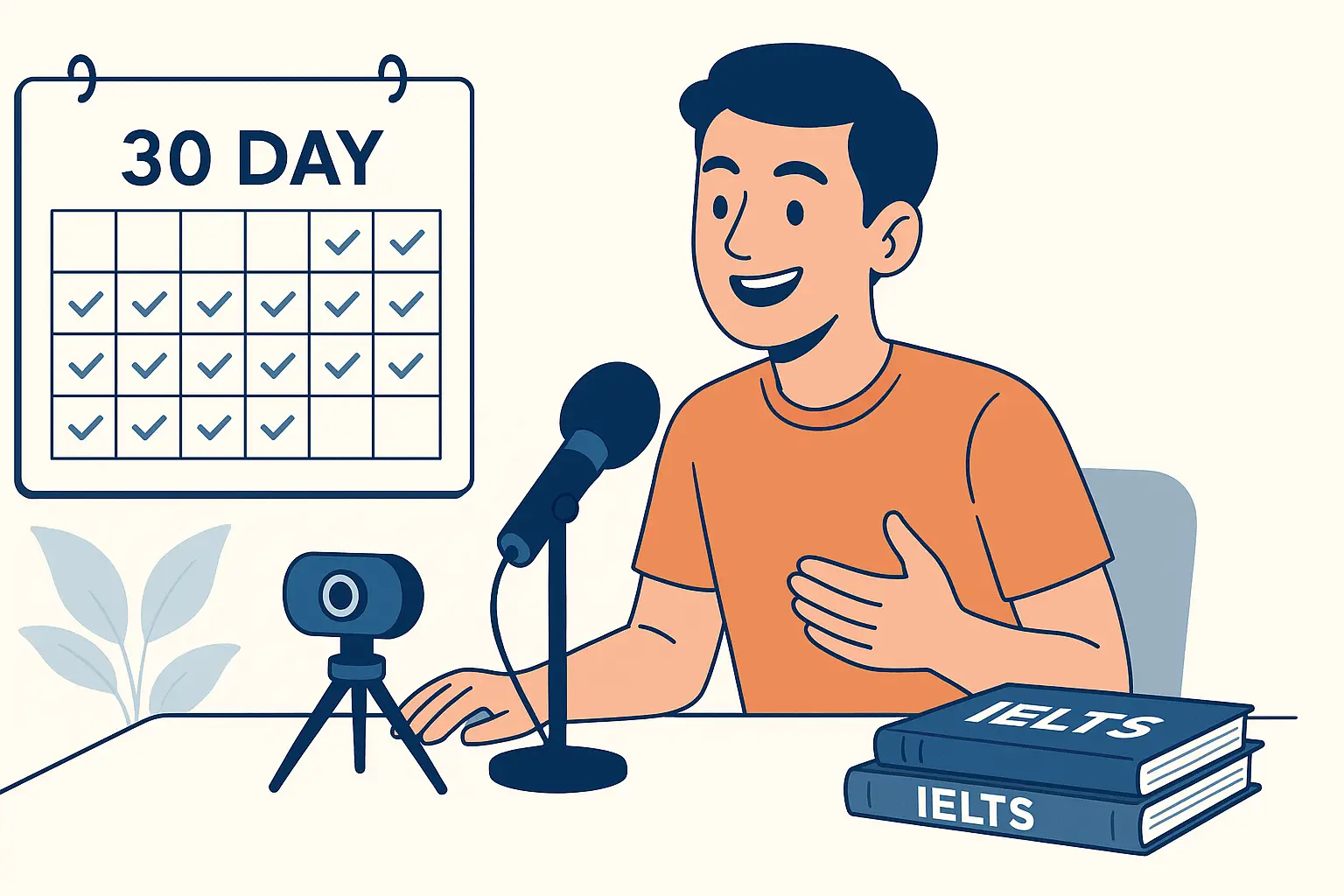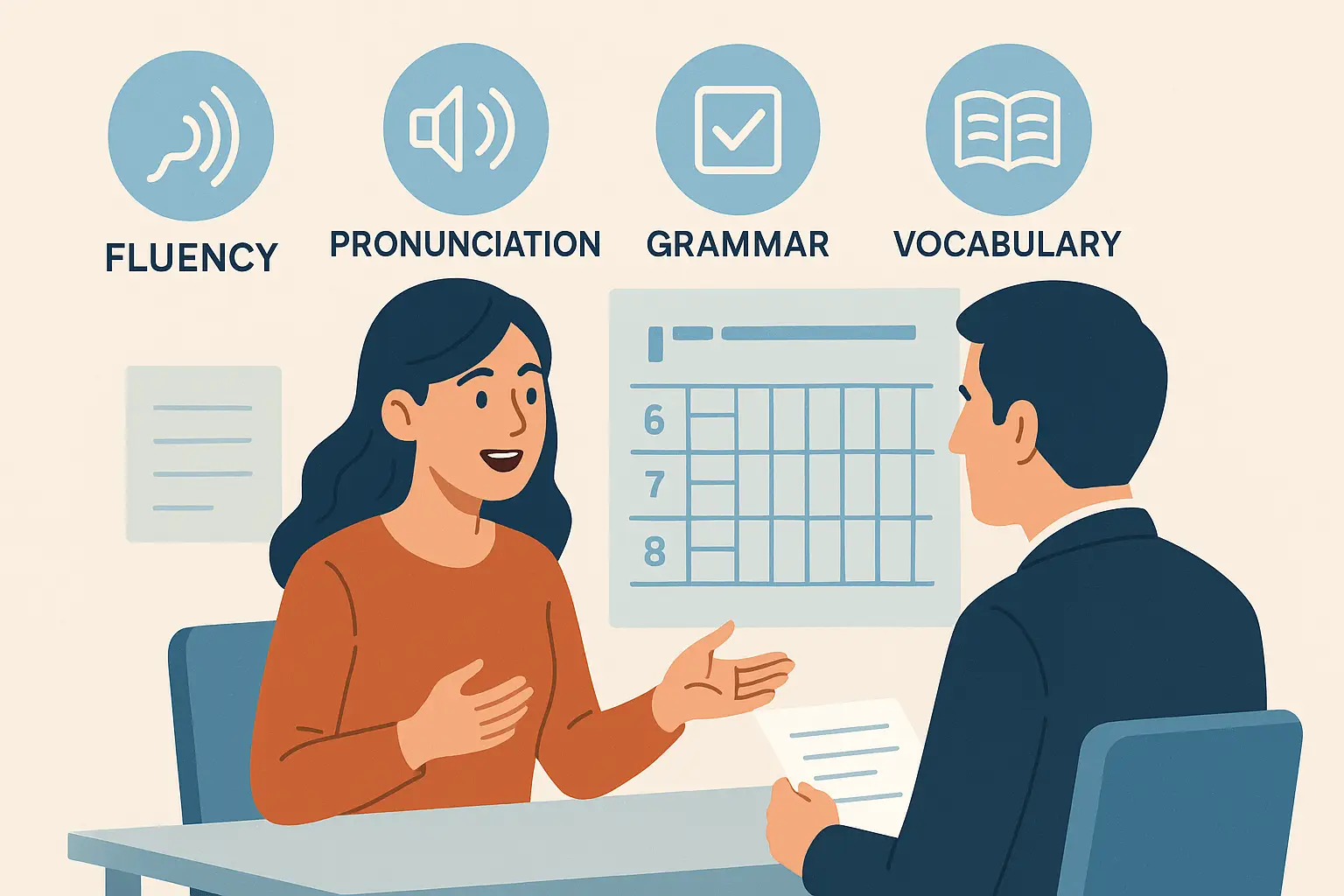“Sir, I didn’t expect that question at all — is this really in the 2025 list?”
That’s the voice note I received last week from Samira — one of my students in Canada — just minutes after she finished her IELTS Speaking test. The topic that threw her off? “Street markets.”
She told me she’d practiced all the usual topics — technology, hobbies, travel — but this one felt so specific, it caught her completely by surprise. And to be honest, she’s not alone. I’ve been hearing this kind of feedback all year.
2025’s IELTS Speaking topics are evolving. They’re not just testing your English anymore — they’re testing your ability to relate language to real-life experiences, often in more vivid or culturally specific contexts.
I’ve been coaching IELTS students for over a decade now, and one of the things I do religiously is collect topic reports from those who’ve just taken the test. This year, students from the UK, India, Bangladesh, Australia, the UAE, and Canada have all contributed.
So when I say this list is current, I mean it. This post is built on verified, real-world questions that my students have been asked in 2025 — not random predictions.
What This Blog Will Cover
Here’s exactly what you’ll find in this blog — all based on real 2025 IELTS tests and student experiences:
- ✅ The most frequent IELTS Speaking Part 1, Part 2, and Part 3 topics from 2025
- ✅ Band 7–9 model answers with a natural, realistic tone — not robotic scripts
- ✅ Real mistakes students made (and how to avoid them)
- ✅ Smart practice questions and a short self-study task
- ✅ Clear insights into what IELTS examiners really want to hear this year
If you’re preparing for the speaking section this year, this guide will help you stop guessing and start preparing with real focus. It’s like sitting down with your own IELTS tutor who’s already heard what’s coming.
👉 Also read: IELTS Speaking Band Descriptors Explained
🔹 IELTS Speaking Topics 2025 (Real Part 1 Questions)
These questions were asked in IELTS Speaking tests between January and April 2025 — straight from my students in the UK, India, Bangladesh, and beyond. Below, you’ll find each topic with a Band 7+ model answer and a breakdown of what many students did wrong.
Think of this section as your guided walkthrough: what works, what doesn’t, and how to stand out from the crowd.
🛍️ Topic: Street Markets
Q: Do you like going to street markets?
Band 7+ Model Answer: Absolutely! I love visiting street markets, especially on weekends. There’s something really charming about browsing handmade crafts or tasting local snacks in an open-air setting. It’s not just about shopping — it’s an experience.
What Students Get Wrong: Many give one-line answers like “They’re cheap.” That’s too general. Add a little flavour: talk about smells, colours, what you usually buy, or who you go with.
📚 Topic: Reading Habits
Q: What kind of books do you read nowadays?
Band 7+ Model Answer: Recently, I’ve been reading a lot of historical fiction. For example, I just finished The Book Thief, which beautifully weaves a personal story into a global event. It’s a genre that helps me escape but also learn something new.
Teacher Tip: Don’t just name a genre — explain why it appeals to you or what effect it has on you emotionally.
🎨 Topic: Art Classes
Q: Did you take any art classes at school?
Band 7+ Model Answer: Yes, we had weekly art lessons in primary school. I remember really enjoying sculpture and working with clay, even though I wasn’t particularly talented. It was one of the few classes where we had total creative freedom.
Mistake to Avoid: Avoid giving just a factual “yes” or “no.” Share a moment, emotion, or what made it memorable.
👉 Want more Part 1 samples and tips? Visit: IELTS Speaking Part 1 Questions and Answers
🔹 IELTS Speaking Topics 2025 – Part 2 Cue Cards
This is where your storytelling skills truly get tested. Part 2 of the IELTS Speaking test gives you a cue card with a situation or memory to describe. You get one minute to prepare and then must speak for up to two minutes. Many students freeze not because they don’t understand the task — but because they don’t know how to make their answer personal and memorable.
Below are real cue cards that were reported multiple times in 2025, along with Band 7+ model answers and insights into what makes them work. Use these as inspiration, not memorisation.
🧑🍳 Cue Card: Describe a dish you learned to cook
Model Answer (Band 8):
I want to talk about a dish I finally learned to cook last year — chicken biryani. It’s a rich, layered rice dish full of spices, and honestly, it felt intimidating at first. I learned it from my aunt, who’s known in our family for her cooking. My first few attempts were a disaster — the rice was mushy, and I always forgot the fried onions! But over time, I got the hang of it. Now, it’s my go-to dish for family weekends. What I love most is how the aroma fills the kitchen and reminds me of gatherings and laughter.
Why This Works: It shows progression, includes a personal connection, highlights a mistake and a recovery, and uses sensory language — all things examiners love.
🏠 Cue Card: Describe a place you would like to live in the future
Model Answer (Band 7.5):
If I could live anywhere in the future, I’d choose a small, quiet cottage tucked away in the countryside. Ideally, it would be near a lake or a forest, so I could start my mornings with a walk in nature. I imagine having a small garden where I could grow herbs and vegetables, and maybe even a hammock to read in. That kind of peaceful, slow-paced lifestyle sounds like the perfect escape from city stress. I think I’d feel more balanced and creative in a place like that.
Common Mistake: Many students give vague answers like “I want to live in a beautiful place.” Go deeper. What makes a place beautiful to you?“beautiful view” or “peaceful area.” Add your own version of beauty or peace.
🧑🎓 Cue Card: Describe a helpful piece of advice you received
Model Answer (Band 8.5):
One of the most memorable pieces of advice I’ve ever received came from my high school English teacher. He once told me, “Don’t write to impress — write to express.” That line completely changed how I approach writing. Before that, I used to overcomplicate my essays, using fancy words that didn’t feel natural. But after his advice, I started focusing on clarity and honesty — and my writing improved. I even apply this mindset when I speak in public or write social media captions. It made me a better communicator overall.
Why This Scores High: It includes a clear quote, a personal transformation, and shows long-term relevance — all delivered naturally.
👉 Want to practise cue cards daily? Explore: IELTS Speaking Part 2 Cue Card Strategy
🔹 IELTS Speaking Topics 2025 – Common Part 3 Follow-Ups
This part of the test pushes your thinking a little deeper. After you finish your cue card (Part 2), the examiner will ask follow-up questions related to your topic — but broader in scope. This is where you’re assessed on how well you explain ideas, make comparisons, and offer opinions in a thoughtful way.
Below are two sets of real Part 3 questions from 2025 tests, along with example insights and tips.
💬 Topic: Cooking and Home Life
- Why do fewer young people cook today?
- Is cooking a skill that should be taught in school?
- How does cooking at home affect family relationships?
Quick Tip: Combine your opinion with a short personal example. You don’t need to sound academic — you just need to sound real.
✅ “Honestly, I think a lot of young people don’t cook because apps like Uber Eats make it so convenient. I was the same in university — ordering food was faster. But once I started cooking for myself, I realised it was healthier and way cheaper.”
💬 Topic: Advice and Decision-Making
- Is it better to get advice from friends or professionals?
- Why do some people ignore good advice?
- How can social media influence the advice we receive?
Reminder: Speak from your own life. Avoid guessing what you think the examiner wants. If you’ve had a weird piece of advice from TikTok — talk about it!
✅ “I think people often ignore good advice because it’s uncomfortable to follow. For example, I once got advice to leave a stressful job, but I didn’t act on it until I burned out. Looking back, the advice was right — I just wasn’t ready to hear it.”
👉 Related: IELTS Speaking Part 3 Opinion Techniques
🎯 Mini Practice Task
Let’s turn theory into action. This mini task is your chance to apply what you’ve just learned. Choose one question below — then grab your phone, set a timer, and record a 90-second response as if you’re in the test.
🎙️ Choose Your Task:
Option A (Part 2 style):
Describe a skill you would like to learn in the future.
Option B (Part 3 style):
Do you think schools should teach students how to manage stress?
🔍 Self-Review Checklist:
After recording, play it back and ask yourself:
- Did I clearly answer the question?
- Did I give a personal story or specific detail?
- Did I vary my grammar and vocabulary?
- Did I sound natural, or was I rushing or hesitating?
🎧 Pro Tip: Don’t delete your first attempt — compare it to your second or third. Growth lives in the playback.
👉 Want more daily speaking drills? Check out: IELTS Speaking Practice Tests
💬 Final Advice from Your Tutor
If you’re preparing for your IELTS Speaking test in 2025, here’s something I want you to remember: you don’t need perfect grammar or native-level vocabulary to succeed. You need clarity, confidence, and connection.
The highest-scoring candidates speak like real people — not like textbook robots. They share stories, laugh at their own mistakes, and explain their thoughts with honesty and detail.
✨ Speak like the best version of yourself. ✨ Tell the truth, not what you think the examiner wants to hear. ✨ Use your real experiences — even small ones matter.
The examiner is listening for fluency, flexibility, and natural communication. They want to hear your English, not a rehearsed monologue.
📌 Save this guide. Revisit the questions. Practice aloud. And if you’ve faced a unique or unexpected topic recently, I’d love for you to drop it in the comments to help the next learner.
👉 Related reading:
🙌 Keep practising, stay consistent — and trust yourself. You’ve got this!





5 Responses
Keep up the excellent work, I read few content on this web site and I conceive that your site is real interesting and has bands of great info .
I?¦ve been exploring for a bit for any high-quality articles or blog posts on this sort of house . Exploring in Yahoo I finally stumbled upon this website. Reading this info So i?¦m satisfied to show that I’ve a very just right uncanny feeling I came upon exactly what I needed. I so much surely will make sure to do not put out of your mind this web site and give it a look regularly.
But a smiling visitor here to share the love (:, btw great design and style.
Thank you a bunch for sharing this with all folks you really recognise what you are talking approximately! Bookmarked. Please additionally seek advice from my website =). We can have a link exchange arrangement between us!